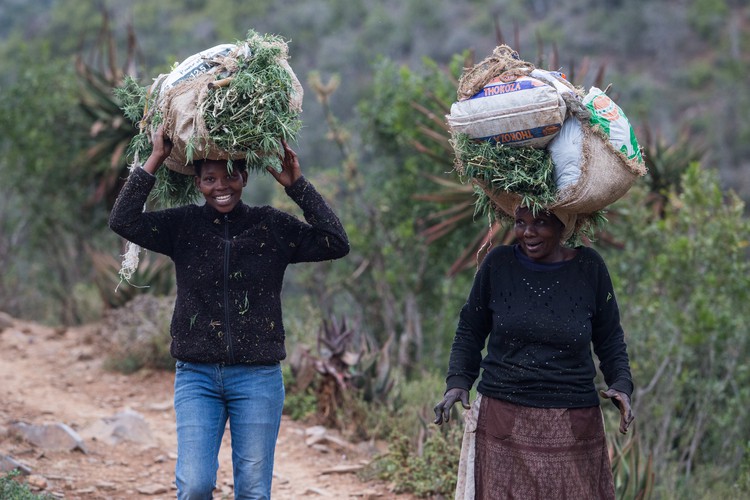|
On 16 October 2019, a senior official of the United Nations Office on Drugs and Crime (UNODC) gave a clear statement endorsing the decriminalisation of drug possession for personal use. This statement was part of a wider common position adopted by the Chief Executives Board of the UN (CEB), consisting of 31 UN agencies.
Dear reader,
On 16 October 2019, a senior official of the United Nations Office on Drugs and Crime (UNODC) gave a clear statement endorsing the decriminalisation of drug possession for personal use. This statement was part of a wider common position adopted by the Chief Executives Board of the UN (CEB), consisting of 31 UN agencies.
The proposal to decriminalise drug possession for personal use has long been supported by various UN agencies, including the World Health Organization, UNAIDS, UNDP, UN Women, and the OHCHR. But for years, decriminalisation was rarely mentioned in UN drug-related documents as an integral part of alternatives to conviction and punishment. This is why the CEB’s common position on drug policy represents a major step in the right direction. |
|
|
|
Meanwhile, decriminalisation policies and practices continue to produce fascinating results at the local and national level. However, studies show that decriminalisation is not a panacea, nor should it be the end goal of policy reform. Decriminalisation of drug possession, where implemented, should be complemented and followed by other measures and services designed based on human rights, public health, and social justice principles. Cannabis policy reform offers clear examples of this – see the stories below for a more in-depth discussion.
|
| Canada’s cannabis colonialism? |
|
One year after cannabis legalisation, the corporate-driven cannabis industry in Canada has come under scrutiny. Scandals, sluggish earnings and executive shake-ups have moderated the soaring expectations of a year ago. Meanwhile, the Australian Capital Territory, which includes the capital Canberra, has decided to decriminalise possession of (up to 50 g of) cannabis for personal use, as well as the cultivation of up to two cannabis plants per person, with a cap at four plants per household. Right at this moment, cannabis regulation is also on top of the agenda for Mexican legislators, and draft proposals have triggered concerns about insufficient measures to grant preferential access to the upcoming legal market for small growers and communities most affected by the war on drugs.
 Source: Pondoland, traditional cannabis growers Credit: GroundUp/Ashraf Hendricks/(CC BY-ND 4.0) Source: Pondoland, traditional cannabis growers Credit: GroundUp/Ashraf Hendricks/(CC BY-ND 4.0)
The urgent need to take traditional cannabis growers into account was also highlighted in a two-part series by South Africa’s GroundUp news agency on the situation in Pondoland. Jamaican cannabis advocate Ras Iyah V has issued a warning to prospective overseas investors who may have intentions of exploiting small ganja farmers to line their own pockets: "Don't come with the sugar cane plantation mentality that you going to work these boys and make yourselves rich and put the money in your pocket and gone."
|
|
|
| Evaluating Colombia’s medical cannabis scheme |
|
|
|
|
|
|
Similar to decriminalisation, the adoption of legal regulation for medical cannabis should not be seen as the end goal of any drug policy reform process. In Latin America, Colombia is known to be at the forefront of legal cannabis production for medicinal purposes: the recent issuance of cultivation licenses has ambitiously aimed to position Colombia as a main producer and exporter of medicinal cannabis.
Yet the legacy of conflict and the violent war on drugs in the country should not be ignored, as explained in this new TNI briefing.
|
|
|
|
| The challenges (and opportunities) of cannabis exceptionalism in Indonesia
|
|
|
|
|
|
|
Cannabis policy activism is growing in Indonesia, attracting supporters through innovative messaging that goes beyond common narratives used in drug policy discussions, touching upon issues of environmentalism and state sovereignty. In a country where drug-related offences are still heavily punished, such an approach in advocacy represents both a hopeful and worrying trend for the future.
|
|
|
|
| |
|
|
|
|
|
|
|
Formed in 1996, the TNI Drugs & Democracy programme explores the underlying causes of drug production and consumption and advocates for evidence-based policies that respect the human rights of producers and consumers. |
|
|
|
| |
|
|
| | | | | | |